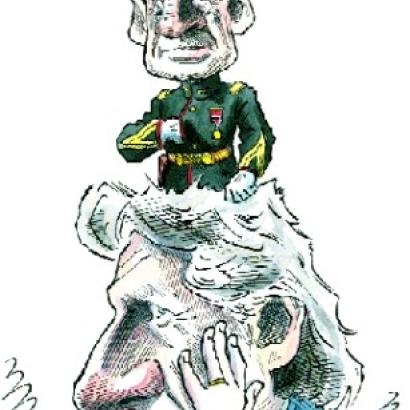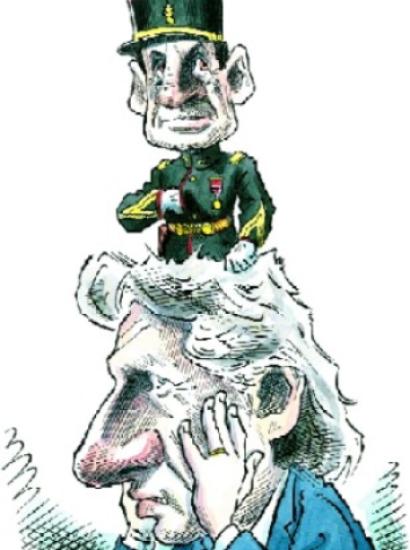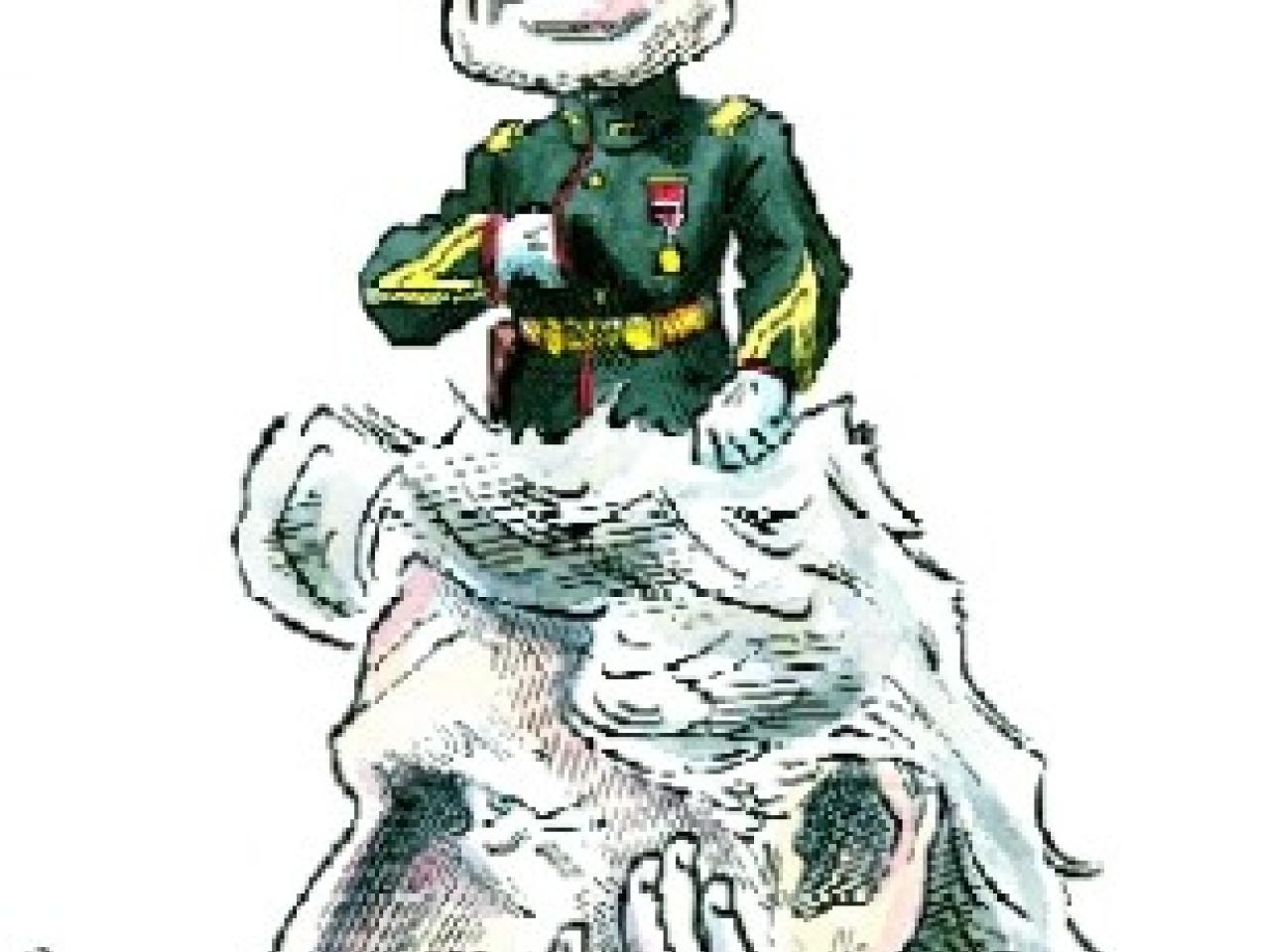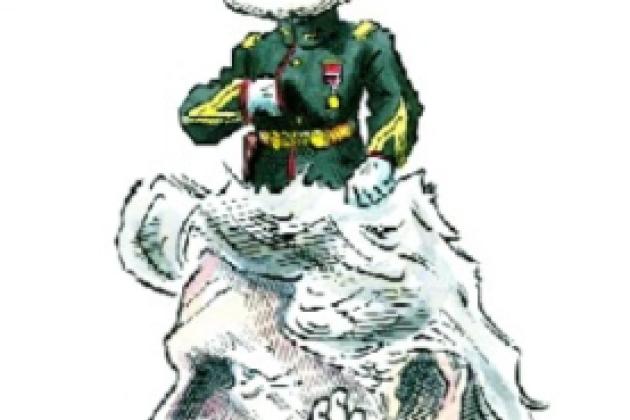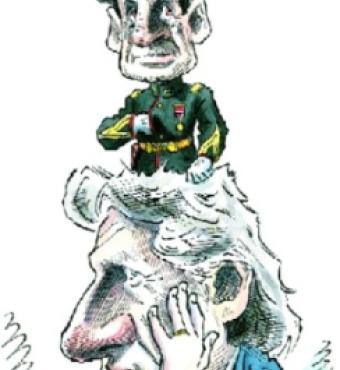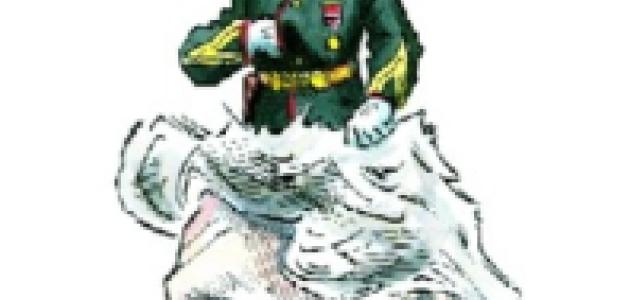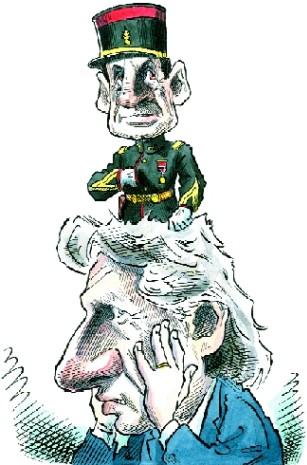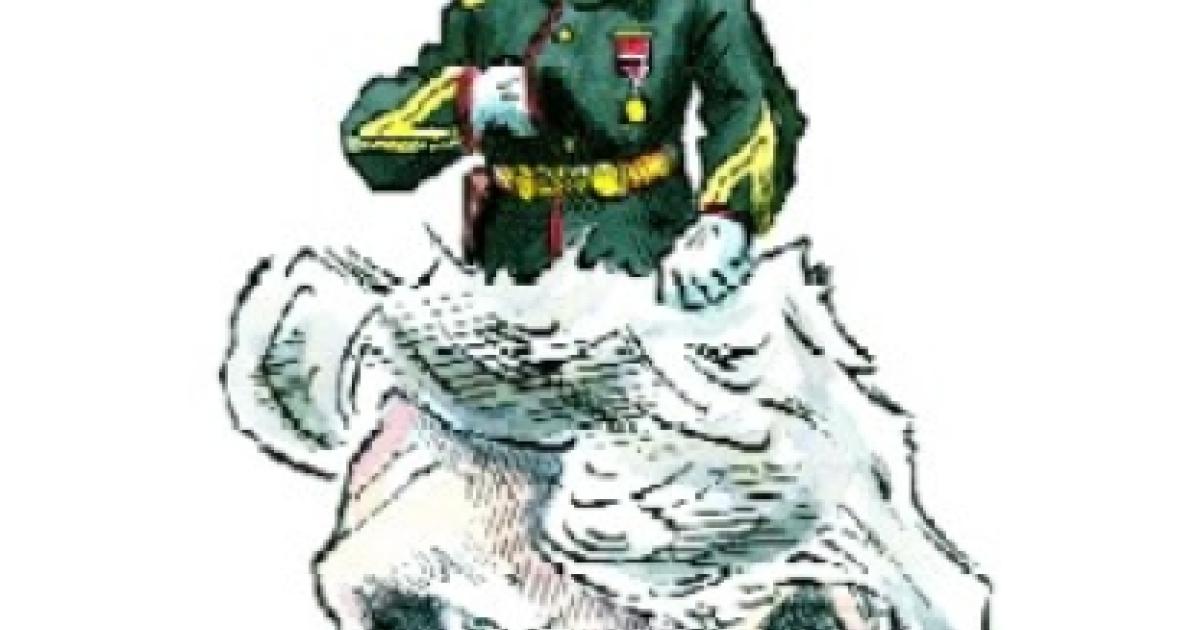The recent havoc caused by violent student opposition to Prime Minister Dominique de Villepin’s labor market reforms is yet another reminder of France’s ever-deepening crisis. Far-rightist candidate Jean-Marie Le Pen’s second place finish in the 2002 presidential election shocked the world into realizing that something was going wrong in France. In a May 2005 referendum, the traditionally pro-European French rejected the E.U. constitution drafted by one of their former presidents, on the grounds that it was the Trojan horse of economic liberalism. Then, last November, we all witnessed the historic ethnic riots in the dilapidated banlieues (suburbs) of dozens of cities.
For two decades, French political and economic elites have been powerless to respond to a worsening political, economic, social, cultural, intellectual, and psychological crisis. No surprise: They are part of the problem.
EYES ON THE PRIZE
The French, fearing the situation could deteriorate even further, yearn for a fresh start after 12 years of a failed Chirac presidency. This is why next year’s presidential election (which can’t happen a minute too soon) is likely to be the most climatic and consequential since the beginning of the Fifth Republic in 1958. On one hand, the malaise in the country is unprece-dented—a result of profound confusion, pessimism, sense of national decline, loss of French identity and self-confidence, and spiraling social tensions and violence. On the other hand, voters will be given a clear choice between the kind of market reforms that have proved successful elsewhere and that are advocated by the Right and the preservation of the status quo that has curiously become the franchise of the Left.
The key question on everybody’s mind, however, is whether Nicolas Sarkozy, who has dominated and renewed French politics in recent years and in effect launched his presidential campaign several years ago, will clinch the ultimate prize. The leader of the conservative UMP Party, Sarkozy is the undisputed star of French politics and has established himself as the leading advocate of a rupture with what he considers the failed “French social model.” He has come to embody a new generation of leaders, a new political style and method, and innovative ideas that have transformed the terms of the public debate and thus is the reformers’ best hope. He is also, however, a controversial and polarizing figure who is facing a complex strategic landscape with a plethora of candidates, including Prime Minister de Villepin (if he decides to run) from his own center-right camp. If Sarkozy fails, at age 51 he might still be the future recourse of a collapsed France, just as Charles de Gaulle was in 1940 and 1958.
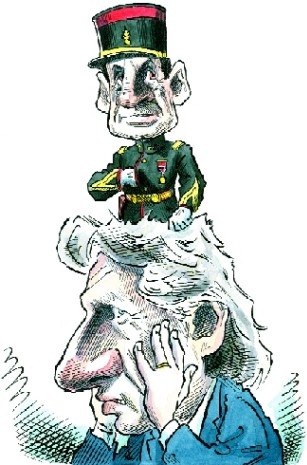
Sarkozy is anything but your traditional French politician. His father emigrated from Hungary and his mother’s father from Greece. He did not go to the École Nationale d’Administration (ENA), the elite graduate school that has trained presidents, prime ministers, cabinet members, and party leaders on both the Right and Left. Villepin is among the most gifted of the ENA cadre, but even if he becomes president—his first elected office—he is likely to symbolize the tail end of this breed of politicians that has dominated and defined French politics during the Fifth Republic. On the other hand, Sarkozy would accelerate the transition: in stark contrast to his peers, he is a corporate lawyer whose role models are prominent business leaders. Like them, he values individual initiative, efficiency, success, and action more than abstract concepts. CEOs have become his best supporters and are anxious for him to undertake the necessary structural reforms that will foster economic growth. In Villepin’s case, even though they see him as a reformer, the CEOs do not fully trust his instincts or commitment when it comes to business issues. More generally, both men can be impulsive and politically paranoid. Sarkozy adds an occasional whiff of insolence and is inclined to analyze situations in terms of rapport de force (power balances).
Without ENA credentials or regional political roots, Sarkozy has had to work his way up through party ranks. As the leader of the young Gaullists in the mid-1970s, he was invited to warm up the crowd at a party convention. Instead of the five minutes allotted to him, he spoke for 20, earning a standing ovation and stealing the show from party heavyweights. A few days later, Prime Minister Chirac told him: “You, my fellow, you are made for politics.” A few years later, at age 28, Sarkozy dared challenge a Gaullist baron and became mayor of the posh Paris suburb of Neuilly. Despite being Chirac’s protégé, he sought to build his own political base in the region surrounding his district, west of Paris.
| Next year’s presidential election (which can’t happen a minute too soon) is likely to be the most climatic and consequential since the beginning of the Fifth Republic in 1958. |
The 1995 presidential election proved a turning point in Sarkozy’s career. He supported Prime Minister Edouard Balladur against party leader Jacques Chirac, who won. Chirac and Sarkozy have been fierce rivals ever since. After the Left returned to power in 1997, thanks to his miscalculated dissolution of parliament, Chirac needed all the help he could get and brought Sarkozy back from the wilderness. Nevertheless, Chirac blocked Sarkozy’s bid to chair the party after its resounding defeat in the 1999 elections for the European parliament. This is why Sarkozy is keen to say he does not owe his rise in politics to anybody but himself. Understanding that the party’s future success—and his own—would require articulating a clear and more forceful set of values and ideas, he developed these themes in his 2001 book Free: opportunity rather than security; rewarding work, risk, and success; personal responsibility; tolerance in a pluralistic society.
Passed up for prime minister despite helping Chirac get reelected in 2002, Sarkozy seized the opportunity to make a name for himself as minister of the interior (in charge of law and order) at a critical juncture. Le Pen’s surprise qualification for the run-off presidential election in 2002 was largely a result of exploding crime rates. For the Left and some of the Right, crime was considered taboo in political discourse out of fears that it would play into Le Pen’s hands. The Left even accused Chirac and Sarkozy of help-ing Le Pen qualify for the run-off by exploiting the issue! In the wake of the 2002 election, Sarkozy had his work cut out: going after those he called “thugs” instead of the more indiscriminate category of “youth” and recapturing part of Le Pen’s electorate. He addressed people’s concrete and pressing problems head-on, was not afraid to visit the banlieues, and achieved tangible results while changing the way people thought and talked about crime, immigration, and integration into French society. He also organized the political representation of Muslims to make them more accountable partners of the state and shield them from overseas influences.
Sarkozy left a more mixed impression in his short stint as minister of finance in 2004, with he himself admitting that he was not a good finance minister. He addressed numerous problems, but the legitimacy of his actions was frequently questioned. Free marketers, inside and outside France, were disappointed by his efforts to encourage all-French mergers and bail out ailing companies. He faced accusations of interventionism, economic nationalism, and even populism when he sought to boost consumers’ purchasing power by inducing hypermarket retail chains to reduce prices. In any case, his major achievement during that time was to take over the party from the hands of Chirac’s designated successor for the presidency, Alain Juppé, who fell prey to a scandal. Forced by Chirac to choose between his ministry and the party leadership, Sarkozy chose the latter, where he enjoys the unflinching support of party activists and most members of parliament.
| For two decades, French political and economic elites have been powerless to respond to France’s worsening crisis. No surprise: They are part of the problem. |
The failed referendum on the E.U. constitution in May 2005 shaped the current political context. Chirac again passed up Sarkozy for prime minister and reappointed him minister of the interior. Chirac’s handpicked successor, Dominique de Villepin, became prime minister and quickly established himself as an alternative option for center-right voters and a credible rival to Sarkozy, thanks to Villepin’s energy, charisma, and political acumen. For example, during last November’s urban ethnic riots, Sarkozy had to share the limelight (as well as the law-and-order backlash) with Villepin. Pressure from Villepin even forced Sarkozy to take the risk of calling the rioters “scum,” and promising to “clean up” the banlieues. As a result of this harsh stance, Sarkozy became a controversial and polarizing figure. The fragmented Left closed ranks in the face of a common enemy, comparing Sarkozy to Le Pen and calling him “fascist,” a classic tactic used in the past against such moderates as Chirac and Valéry Giscard d’Estaing.
A CLEAR CHOICE FOR VOTERS
Villepin’s challenge is just as great as Sarkozy’s. He has been prime minister during Chirac’s “fin de règne” and is perceived as his chosen successor. His only chance to be a credible candidate for president is to show results, especially on the employment front. For that, he has little time and even less legitimacy. This is why, with the energy of despair and without consultations, he improvised the labor market reforms this spring that met with so much resistance from unions and students. Sarkozy has no choice but to support Villepin’s reforms—borrowed from Sarkozy—if he wants to maintain the credibility and feasibility of his own reform agenda. That is why Sarkozy has concentrated his criticism on the prime minister’s method.
| Sarkozy is a corporate lawyer whose role models are prominent business leaders. Like them, he values individual initiative, efficiency, success, and action more than abstract concepts. |
In contrast to Villepin, Sarkozy has taken the time, over the years, to engage the electorate as well as key constituencies with his ideas and reform agenda. He will release his program after he leaves the cabinet at year’s end (or sooner if he feels he is being dragged down by Villepin’s woes). If elected, Sarkozy will count on the legitimacy and momentum of his victory, a fresh majority in parliament, and a five-year window to pursue a big-bang approach: all the key reforms, immediately and at once.
Sarkozy and Villepin share different visions for France. Both are Gaullists in the sense that they are haunted by French decline and their own destiny. They are naturally bold leaders who believe in the authority of a strong president and favor the emergence of a more American-style presidential regime with reinforced parliamentary powers. However, Villepin finds his inspiration in France’s glorious past and exceptionalism; Sarkozy, in foreign experiences as well, including Anglo-Saxon ones. Both believe France’s problems to be self-inflicted—not the fault of global markets, Europe, or the United States. But Sarkozy has come to the conclusion that the French socioeconomic model no longer works and should be overhauled. Villepin rejects that vision: For him, the French model can and should be saved, provided some necessary adaptations are made. Tactically, Villepin undercuts the appeal of a “rupture” from the existing model by criticizing commentators who indulge in the theme of French decline. He had hoped that his success as prime minister would cast a rupture as dangerous and unnecessary.
Even though both are pragmatic politicians, Sarkozy’s instincts are more liberal and less “Jacobin” than Villepin’s. He talks about individuals and organized groups and their concrete problems, not an abstract France. He wants to loosen up the French model of integration and strict separation of church and state by recognizing a public role for religion and advocating some form of “affirmative action” for minorities that would stop short of quotas. At the same time, he has initiated immigration laws emphasizing professional skills rather than family regrouping.
Sarkozy’s “rupture” does not present itself as an ideological crusade. To be sure, Sarkozy has brought ideological clarity to the center-right and suffers no complex from being on the Right. He stands for lower taxes and reduced public spending, but you will never hear him talk about “rolling back the state,” which would spell political suicide. “Rupture” does not necessarily suggest conflict but an approach that requires overcoming resistance to change. For example, Sarkozy is fully aware that repealing the 35-hour work week would trigger massive opposition, so his method has been to emphasize the commonsense idea that people can’t be prevented from earning more by working more. Rather than taking away options, he offers more choices and opportunities to those who want them. When he proposes to replace only half the retiring civil servants, he also pledges better salaries and faster promotions for the shrinking workforce that would result. His “rupture” would take the path of incentives, decentralization, experimentation, and the empowerment of individuals.
This is why Sarkozy is often called “l’Américain” by supporters and detractors alike. Even in foreign policy, he would like to rebalance French foreign policy by tightening relations with the United States, Israel, Britain, and within Europe (including the formerly communist East). He shares many of the same values as Germany’s Angela Merkel and Britain’s David Cameron. In the midst of the transatlantic tensions about war in Iraq and charges of anti-Semitism in France, he was bold enough to come and speak to U.S. Jewish organizations—with resounding success.
| Sarkozy stands for lower taxes and reduced public spending, but you will never hear him talk about “rolling back the state,” which would spell political suicide in France. |
France’s general political and social situation is likely to remain very fluid until election time. Events and candidacies will play a key role. Will Villepin be a candidate? Will Le Pen? Who among the socialists? What role will Chirac play? The only sure thing is that Sarkozy will be a candidate and that the election will be framed largely as “for him or against him.” He might lose—at France’s peril. But if he wins, no one else is better equipped to reverse France’s decline.








